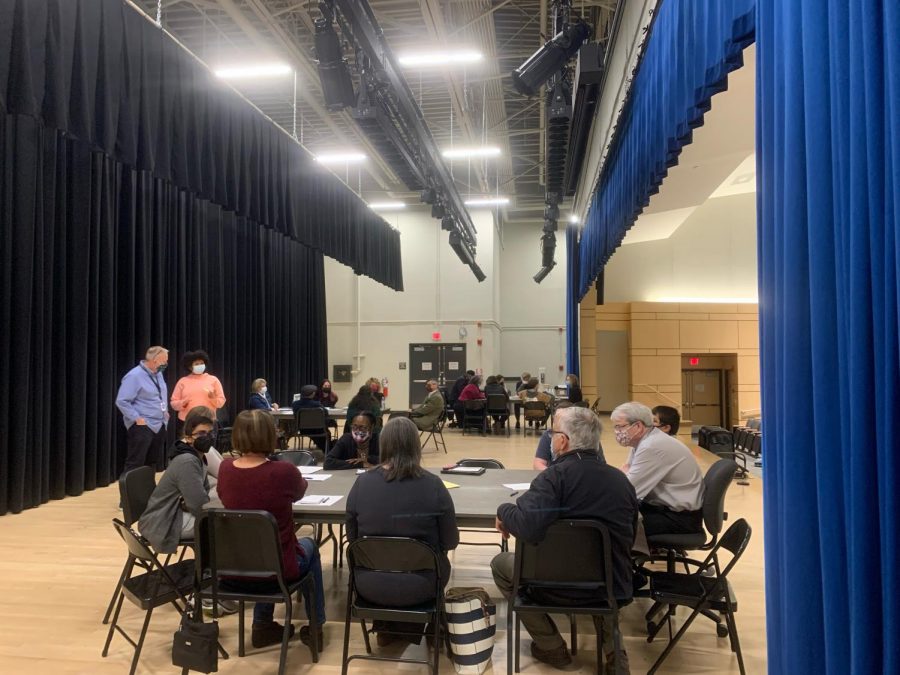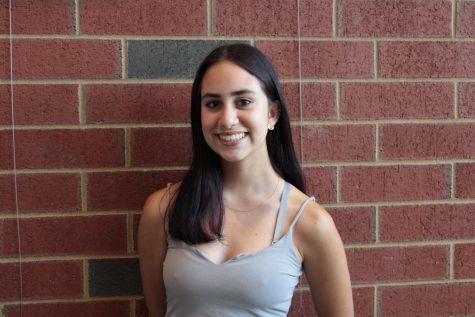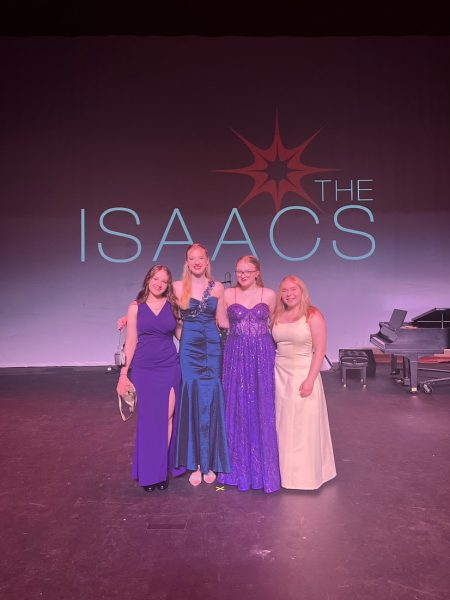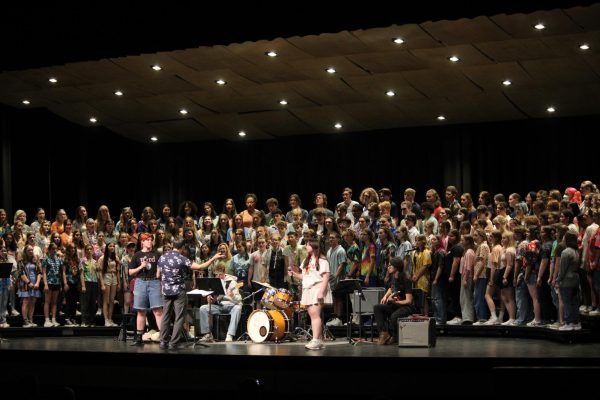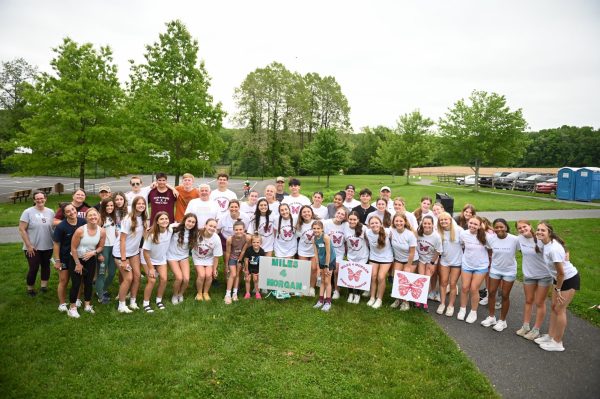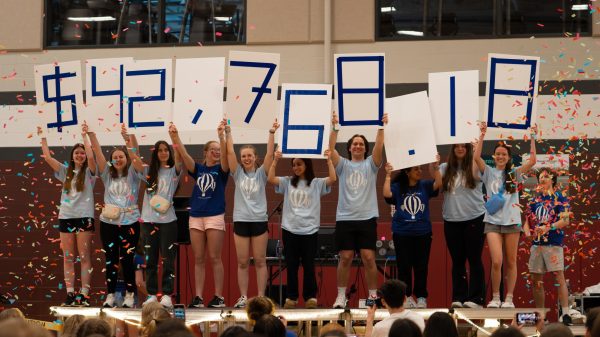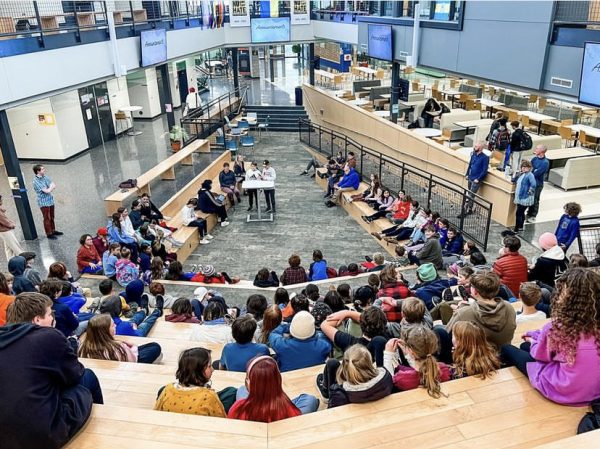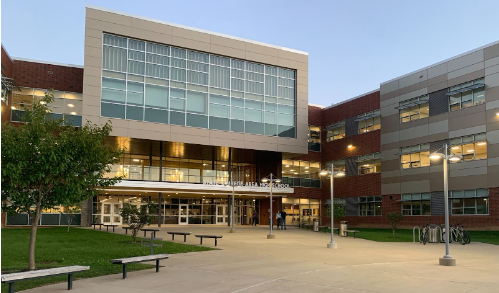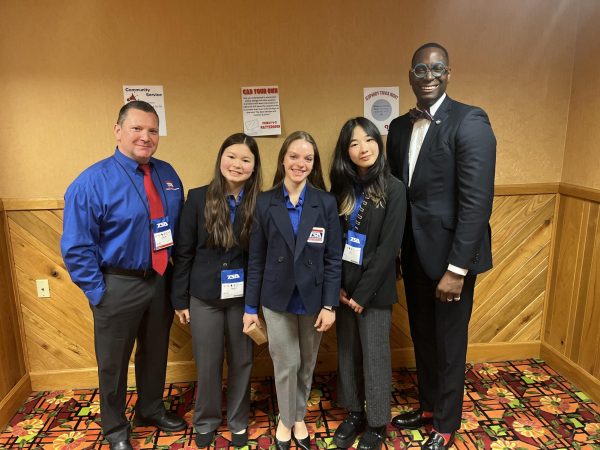Students Share Their Perspective at Board Meeting
November 23, 2021
Administrators, teachers, and students met during lunch in the Cafeteria LGI on Nov. 16 to discuss issues that impact the State High community. Everything from weighted courses to diversity in staff and traffic guards was discussed at the meeting.
The meeting was split up into three groups facilitated by district administrators, all tackling different issues. Students were free to move from table to table to hear a variety of different discussions.
“We brought up just some main issues and were able to put them into three categories: academics, equity, and safety,” explained junior Miriam Ruback, student representative for the school board.
Ruback spoke on how this event worked to amplify student voices.
“We were able to see the common issues throughout most student opinions which I thought was really really great to hear,” Ruback said.
The agenda was extensive—everything from religious holidays, GPA, and accessibility was discussed. Every table was full of active students playing a vital role in their community.
“It’s wonderful that we are raising these student voices,” Ruback said.
Despite the diversity of topics, many issues such as academic and equity intersected. Sophomore Senate President Prithvi Narayanan explained some of the current issues faced by students specifically when it comes to GPA and weighted vs unweighted courses.
“There’s a lot of competition because of these weighted and unweighted courses,” Narayanan explained.
Currently, taking a weighted class (such as an advanced or AP level course) gives students a one-point increase for their weighted GPA. This creates incentive for students to pile on the weighted courses, which often creates increased stress and competition among students. With so many challenges associated with this weighted system, many students, Narayanan says, might wonder the reason for these courses.
“The main reason for that is that universities want it,” he explained.
For students who want to take classes that interest them while also maintaining a competitive GPA, this can be a challenge.
“There are so many art courses that aren’t weighted but that’s the course you have to take if you want to go down that arts path,” Narayanan explained. “What we encourage is that you should just take courses that you enjoy, but the entire issue with that is colleges still look at your GPA.”
Concerns about how to ensure accessibility for students taking online courses over the summer were also brought up at the meeting. The hefty price tag for those who need to take these classes may make the best education plan nearly impossible. Though support for financially challenged students does exist, it is not widely known. These systems “are not being advertised which is a major issue,” expressed Narayanan.
The discussion surrounding academics and equity will no doubt continue for years to come. If students feel strongly about this issue, they should speak up about it, Narayanan says.
“We have momentum, and I think we can get it done if we get through this together.” Students should keep their eye out for the next meeting to advocate for change they wish to see in our school.

